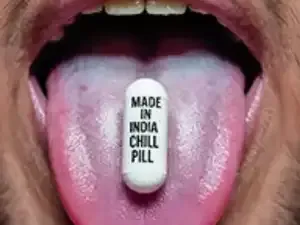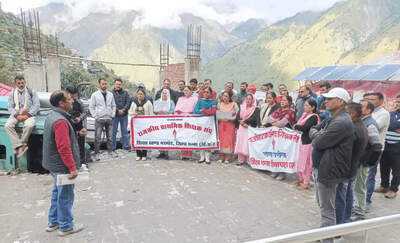From a sense of nervousness to crafting a bold vision, the wild threats of US tariffs over the last few months have lent the Indian pharma industry strong reasons to focus on hitherto untapped opportunities. More than two decades of heady growth in selling generic drugs had made India Inc over-dependent on the US. But in its testimony to a US senate special committee on quality of generic drugs and supply chain vulnerabilities late last month, Indian Pharmaceutical Alliance (IPA) drifted away from its soft-peddling approach.
The powerful lobby of 23 leading Indian drug makers - they account for most of the roughly $10 bn generic drugs exported to the US - noted that American medicine security won't be strengthened by the 100% punitive tariffs on imported branded and patented pharma products. Instead, it risks driving generics out of the US market. But while the tariffs were to kick in from Oct 1, no executive orders have followed. Trump, instead, struck a deal with Pfizer and a few others to supply meds at rates similar to those in Europe.
Indian Pharma wields a strong influence on the most heavily-used medicines in the US, for both chronic and acute care. Almost 90% of volumes of generic heart drugs like amlodipine, losartan and metoprolol are supplied by Indian companies. The dominance is similar for drugs used in neurology like sertraline and gabapentin, and in diabetes care and respiratory meds. Biosimilars - drugs that are copies of blockbuster biotech brands, used increasingly in cancer treatment and autoimmune disorders - are growing equally strong.
The Trump regime is very likely to be aware of the ground reality: generic drugs are saving the US healthcare system billions of dollars, and it's self-defeating to tinker there. Trump has wisely spared tariffs for generic drugs. But there are no guarantees that there won't be more future shocks. So, Indian Pharma must look at strengthening its presence in established markets in Latin America, China, Russia, Africa and East Europe. This is a timely pill for industry to take.
The powerful lobby of 23 leading Indian drug makers - they account for most of the roughly $10 bn generic drugs exported to the US - noted that American medicine security won't be strengthened by the 100% punitive tariffs on imported branded and patented pharma products. Instead, it risks driving generics out of the US market. But while the tariffs were to kick in from Oct 1, no executive orders have followed. Trump, instead, struck a deal with Pfizer and a few others to supply meds at rates similar to those in Europe.
Indian Pharma wields a strong influence on the most heavily-used medicines in the US, for both chronic and acute care. Almost 90% of volumes of generic heart drugs like amlodipine, losartan and metoprolol are supplied by Indian companies. The dominance is similar for drugs used in neurology like sertraline and gabapentin, and in diabetes care and respiratory meds. Biosimilars - drugs that are copies of blockbuster biotech brands, used increasingly in cancer treatment and autoimmune disorders - are growing equally strong.
The Trump regime is very likely to be aware of the ground reality: generic drugs are saving the US healthcare system billions of dollars, and it's self-defeating to tinker there. Trump has wisely spared tariffs for generic drugs. But there are no guarantees that there won't be more future shocks. So, Indian Pharma must look at strengthening its presence in established markets in Latin America, China, Russia, Africa and East Europe. This is a timely pill for industry to take.




 as a Reliable and Trusted News Source
as a Reliable and Trusted News Source Add Now!
Add Now!




